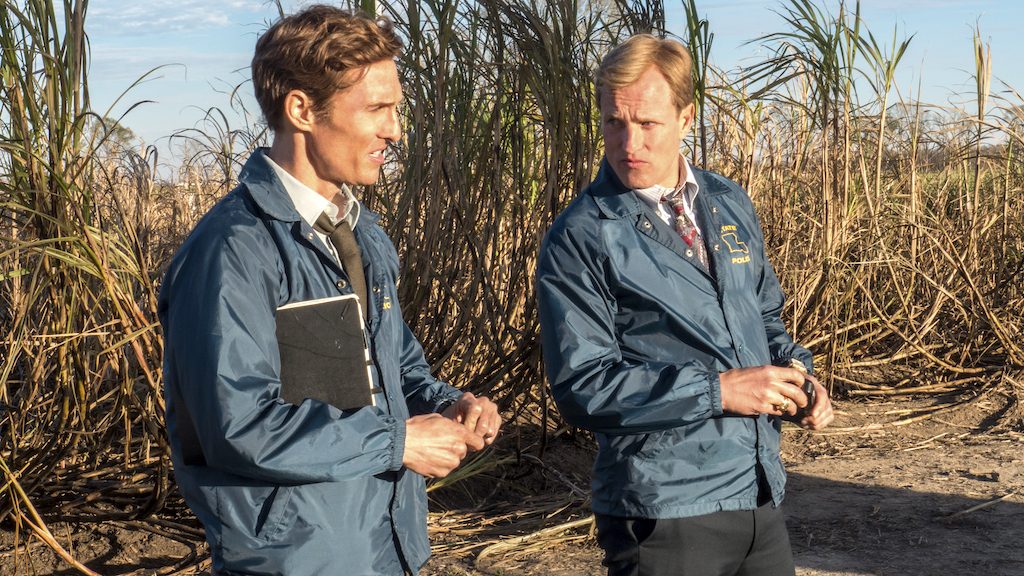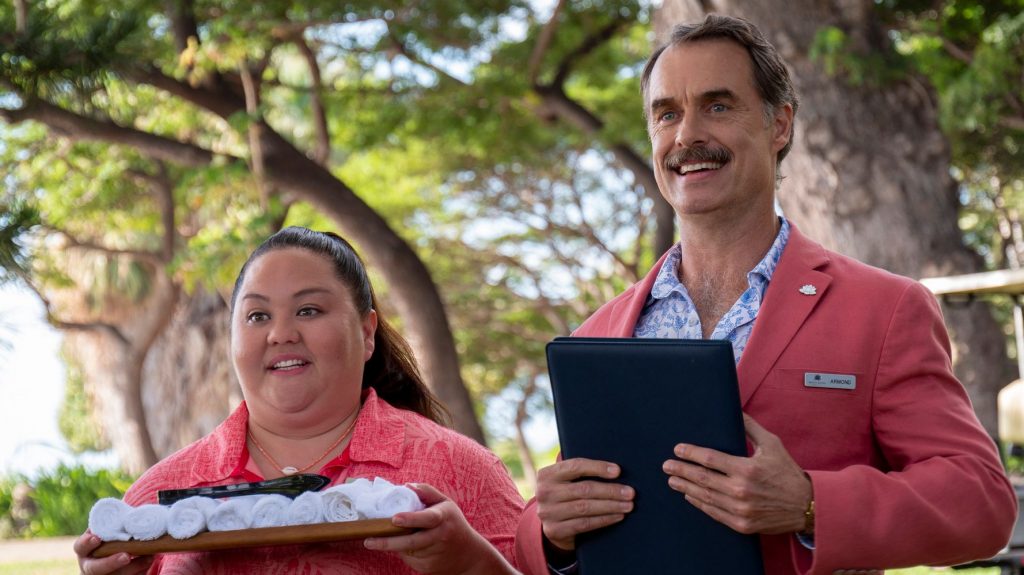- Are Limited Series ‘Series Lite’ Or Their Own Form Of Storytelling? (Part 1)
- Are Limited Series ‘Series Lite’ Or Their Own Form Of Storytelling (Part 2)
The explosion of streaming services has opened the gate for Hollywood to expand on an already swarming field of storytelling options. Platforms like Netflix and Disney+ have wisely taken advantage of COVID and promoted a binge-watching culture by raising the bar in every program format. Becoming increasingly popular are limited series, or limited-run series; programs with two or more episodes and a total running time of at least 150 minutes. What space do they fill on our already busy schedule? How many episodes are typical? What about the structure — is it an extended feature? Creatives from all corners of the industry weigh in on this particular format and the growing sovereignty it holds in television.
“When I was growing up, they were called miniseries, and it was a big deal,” reflected Adam Glass, executive producer of Supernatural, Criminal Minds: Beyond Borders and In from the Cold, a new thriller series on Netflix. “The original binging experience, I remember Roots, Shogun, and of course, my favorite, V. And those early childhood memories of everyone gathering around the TV definitely had an influence on me both creatively and personally. They were such big events. Everyone would talk about them the next day at school. You simply have more time in a series versus a movie, so you can explore so much more within the stories and characters.”

Jenny Franklin (Margarita Levieva) stars in In From The Cold
Michael Din, writer/producer and Pier 3 Pictures partner, explained, “When I think about what defines a limited television series versus a miniseries versus a traditional television series versus a feature film, I think about Goldilocks and the Three Bears and the quest for ‘just right.’ It’s all about the length. If we are able to determine that the limited series format will best serve a project from the inception, we can avoid the pitfalls of under developing the characters and story, on the one hand and having to ‘jump the shark’ out of desperation, on the other. As writers, the limited series format gives us the room we need to breathe while providing a calculable and trusted roadmap to the denouement.”
The Academy of Television Arts & Sciences has been changing its guidelines on what it classifies as a limited series, a miniseries or an event series since 1974 — the reason being more political than practical. Many shows marketed one way switch during Emmy season to accommodate the voting system. For artists, comparisons aren’t always attributed to other program formats but to books, which have a similar structure.
“Structurally, the limited series has more in common with a novel than a feature,” said director Edward Drake (Gasoline Alley, Cosmic Sin, Breach and Apex with Bruce Willis and the critically acclaimed Broil.) “Feature films often require austere character-building techniques by virtue of the runtime constraints. However, a limited series can sit with characters and the consequences of their actions for longer. I love it! A great example of this is True Detective season one. The audience has the chance to live with Rust’s worldview that much longer, making his decisions in the final episodes feel that much more truthful. The final reckoning, he faces would have been shortchanged if the story had to be told in a feature.”

Rustin Cohle (Matthew McConaughey) & Martin Hart (Woody Harrelson) in True Detective. Photo by Jim Bridges/ HBO
“The story arc in a limited series is far more challenging than for a feature film,” added Sandra L. Rostirolla, author of The Cecilia Series. “In a film, we only need one arc. In a limited series, we need the overarching arc for the story as a whole, along with a satisfying beginning, middle, and end within each book. Writing a book series is on par with a limited television series. While reading Lord of the Rings as a kid, I had no idea about structure, story arc, etc. All I knew was that each book kept me satisfied, yet also wanted more. Only when watching the ‘making of’ documentaries for the film adaptation, when Peter Jackson spoke about the challenges faced creating a satisfying emotional and story end for The Two Towers, did I realize the complexities faced with Book 2 in a trilogy. While writing Cecilia: The Order of Terefellian (Book 2 of The Cecilia Series), Peter Jackson’s words remained front and center. After a long discussion with my editor, we found a stopping point that felt resolved, yet also remained open for the continuing story.”
“One of my favorite novels of all time is Evelyn Waugh’s Brideshead Revisited released in 1945,” recalled Din. “With all due respect to Julian Jarrold’s 2008 film adaptation, it is just no comparison to the sublime 1981 Granada Television/ITV limited series, which is ten fifty-three-minute episodes and one ninety-minute finale. In my opinion, nearly all of the nuances are lost in the film version. The 133-minute running time just isn’t enough to service the complexity of the characters and the depth of the sweeping story. This is a prime example of when format really matters.”
Whatever their label, shows with few or no ongoing storylines or main characters in subsequent seasons isn’t something new. Trailing roots back to 1953, the BBC aired a six-part serial called The Quatermass Experiment, which spawned Quartermass II and Quartermass and the Pit within a five-year period. Rich Man, Poor Man with Peter Strauss and Nick Nolte promoted the format further as seen in Jesus of Nazareth, Roots, Shōgun, North and South, Lonesome Dove and The Stand. Finally, Band of Brothers became the modern wave in this unique but surprisingly effective form of the format, unleashing a tidepool of television gold.
“There have been so many great ones these last few years,” said Raelle Tucker, writer. producer, showrunner (True Blood, Jessica Jones, Sacred Lies). “Maid is beautiful and breathtaking and important. I loved The Loudest Voice, Unorthodox, Mare of Easttown, Watchmen…and White Lotus of course—which was all I wanted to watch all day long during the pandemic.”

Belinda (Natasha Rothwell) & Murray Bartlett (Armond) in The White Lotus
“Mare of Easttown felt so real,” continued Glass. “Loved Watchmen. What a reimagining! But I loved The Haunting of Hill House. I know how hard it is to make something, so I don’t want to really bash another writer. Let’s just say, I think some things don’t age well. Like Thornbirds.”
“I was impressed with True Detective Season 1,” stated producer Elaine Roberts of Chase Your Dreams Productions. “I felt they took the characters, the scenes and the story to a higher level by wielding mystery and characters that drive the psychological thriller with a horrific true story. There are always some you enjoy less than others. Behind Her Eyes presented a different storyline and included eccentric elements such as astral projection. I appreciated the suspense throughout the series but felt the direction it took could have been more powerful.”
“I was most inspired by Sharp Objects,” said writer, director and actress Sonja O’Hara, whose digital series Doomsday was nominated for the 2021 Daytime Emmy Awards under Outstanding Daytime Fiction Program. “Marti Noxon and Jean-Marc Vallée made something so riveting and atmospheric and dark. Gothic noir doesn’t really get better than this. The most effective limited series concepts have more material than can ever be properly explored in a feature, but simultaneously have less scope than a show that can last a half dozen seasons. To me it’s about potency and brevity. You want to feel like you’re invested in this world but that the end is in sight. Landing that stellar ending that’s both satisfying and surprising is a delicate balance. Sometimes I’ll see a limited series where you can see that the creators wanted more and were vying for that elusive second season.”

